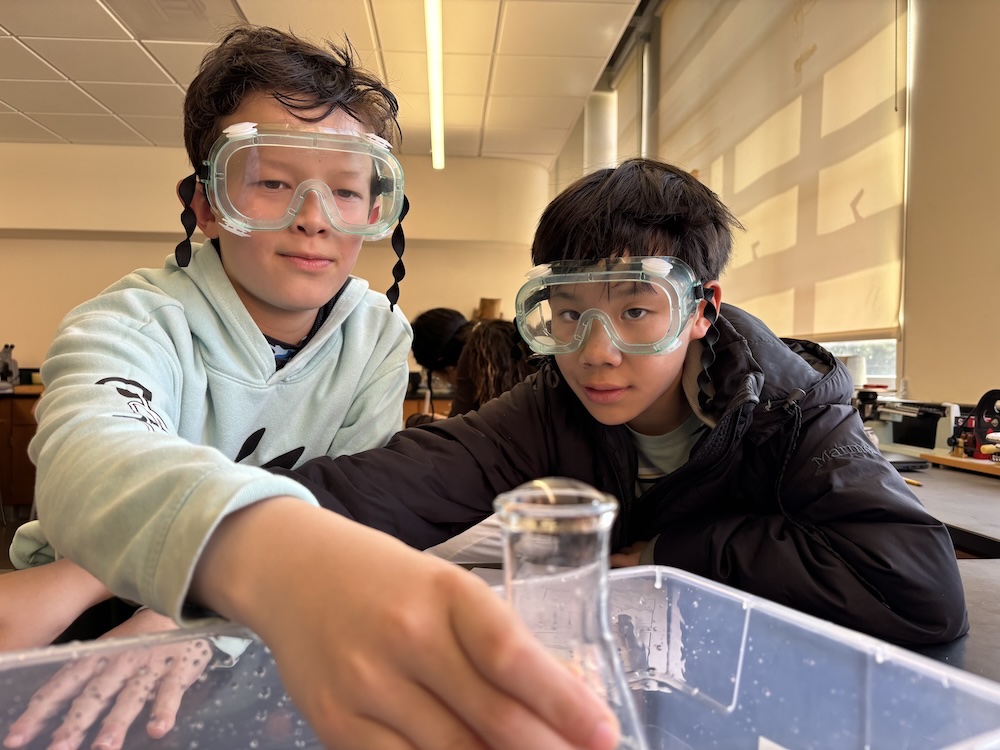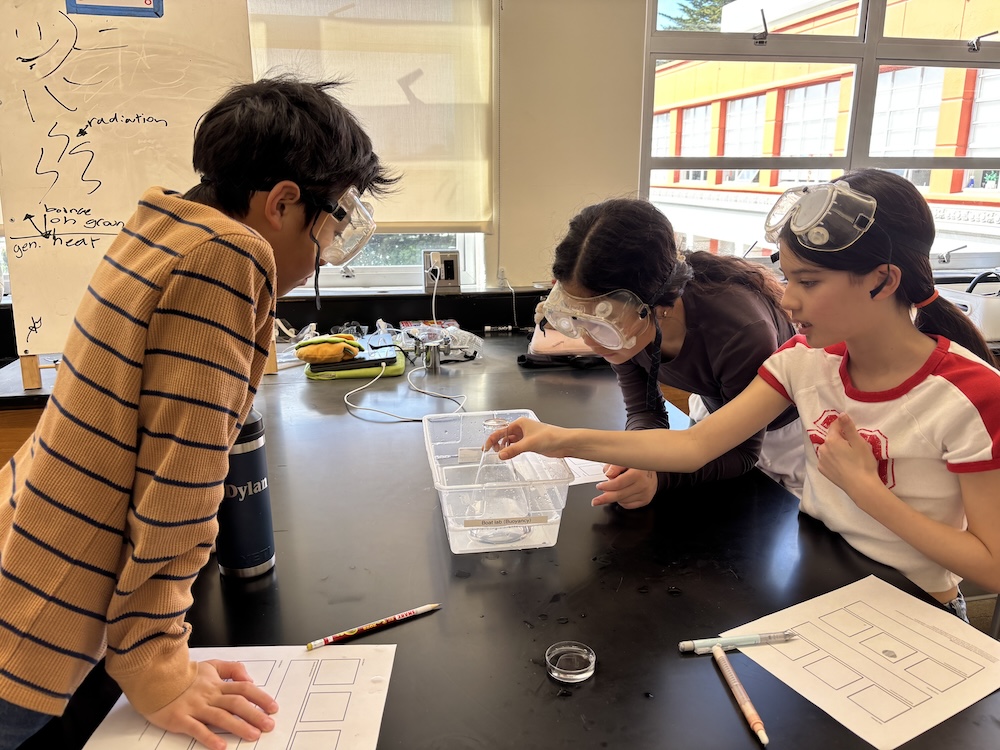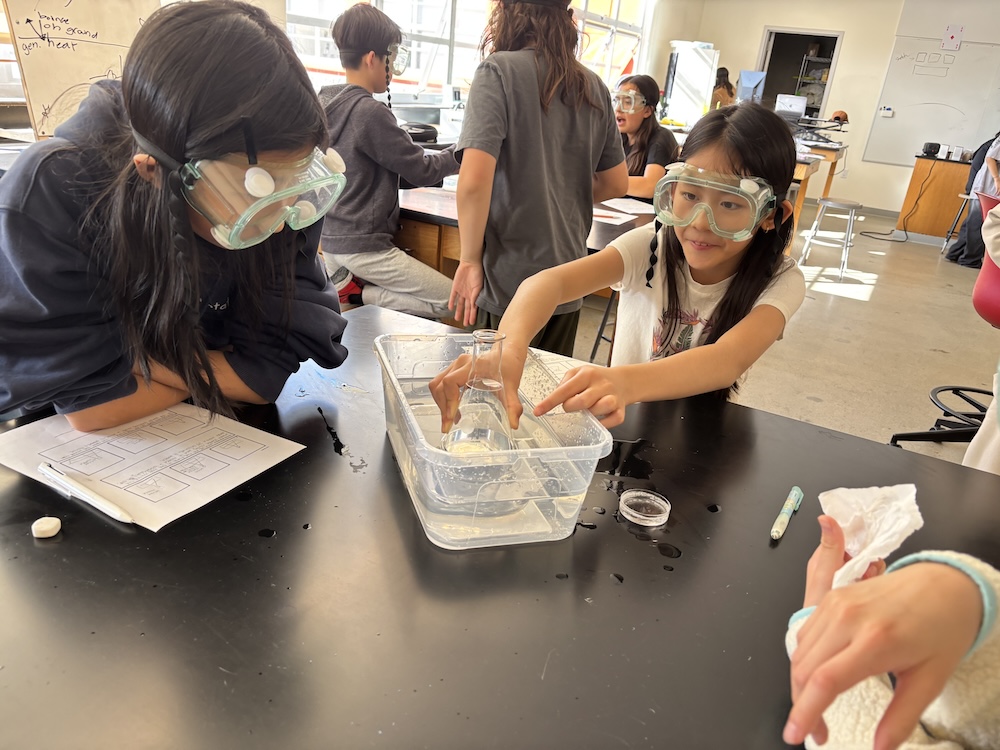


By Joshua Brinn, Sixth Grade Science and Math TeacherOur Grade 6 science program is guided by a central goal: to help students think and work like scientists through their own investigations. This year has been all about helping students develop their skills as scientific thinkers who are curious, analytical, and ready to draw conclusions.
In the elementary years, students build a strong foundation in science by developing a deep sense of wonder about the natural world. They explore, observe, ask questions, and cultivate a genuine appreciation for how science helps us understand our surroundings. Grade 6 builds on that joyful curiosity by guiding students into a more intentional process of investigation. Now, they take the lead in designing experiments, asking testable questions, developing procedures, collecting and analyzing data, and drawing evidence-based conclusions. This shift empowers students to make sense of complex systems and phenomena through their own inquiry, laying the groundwork for the scientific thinking they will carry forward in the years ahead.
With their scientific toolkit in place, students move into three core areas of discovery: weather and climate, Earth’s geological processes, and thermal energy. In each unit, students use hands-on experiences and data analysis to make sense of complex natural systems. Whether they are tracking weather patterns, modeling plate tectonics, or investigating how heat moves through different materials, they are constantly applying their skills to real-world scenarios.
The year culminates in our current unit on humans and their impact on global systems. Here, students take everything they have learned about systems thinking, data collection, and cause and effect, and apply it to pressing environmental challenges. They explore the role of human behavior in shaping Earth’s systems and consider the responsibilities they carry as informed global citizens.
Throughout the year, students are also building key learner competencies. They are learning to reflect on their process, take intellectual risks, use feedback to improve, and collaborate effectively. These skills help them grow not just as scientists, but as empowered learners and thoughtful community members.
Most importantly, we want students to walk away from Grade 6 science feeling capable, curious, and confident in their ability to ask questions and seek answers. Science is not just something we learn about. It is something we do. And our students are doing it every day.

